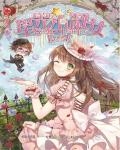Chapter 173: Simple and Crude Policy
Originally in history, Zhu Yuanzhang also moved wealthy families from Jiangnan to Yunnan and the north.
Shen Wansan's family was also among those relocated.
However, the record in "History of Ming Dynasty" that Shen Wansan was envied by Zhu Yuanzhang for repairing Nanjing City and entertaining the troops, and was exiled to Yunnan, is nonsense.
Not to mention that Shen Wansan had been dead for many years when the Ming Dynasty was founded, and the Shen family had been working for Zhang Shicheng, escorting grain to Dadu for Zhang Shicheng. Zhu Yuanzhang must have gone insane to let the Shen family repair Nanjing City and entertain the troops.
But there is a definite historical record that Shen Wansan's son-in-law Gu Xuewen conspired with Lan Yu, resulting in the execution of almost all of Shen's direct blood relatives.
In other words, the Shen family colluded with Lan Yu, an official and a businessman. Later, Lan Yu was killed and the Shen family fell into decline.
If Prince Zhu had not died and Lan Yu had not been killed, and they were still powerful in the court, I am afraid that the Shen family would have been able to prosper again with the help of Lan Yu.
From this incident, we can see that the wealthy businessmen in the south did not give up their pursuit of political power after the failure of Zhang Shicheng, Fang Guozhen, Chen Youding and others.
The Shen family, who worked for Zhang Shicheng, were able to rely on Lan Yu, a founding hero during the Hongwu Dynasty. Other wealthy businessmen, gentry, and powerful people must have also relied on other founding heroes.
It is conceivable that during the Hongwu period, Zhu Yuanzhang madly killed corrupt officials, but was still unable to prevent the Ming officialdom from degenerating step by step to a level that he could not understand.
In this time and space, Zhu Yuanzhang relocated wealthy households again and expanded the scope.
He killed people again, although he did not use the cruel method of skinning and stuffing straw to avoid scaring his kind-hearted son. However, before the arrival of winter in Nanjing, ministers and local tyrants were beheaded in large numbers, and there was panic throughout the court and the country.
When Zhu Yuanzhang decided to relocate the wealthy households, rebellions broke out in Dongguan and other places. In addition, there were disasters in the country. Many ministers believed that this was a warning from God, asking Zhu Yuanzhang to change his mind.
Zhu Yuanzhang turned a deaf ear again.
This is when the benefits of the Han and Tang dynasties' legitimate rule began to emerge. The founding emperors enjoyed immense prestige and power, allowing them to do as they pleased without restraint. Even when ministers banged their heads against pillars (and none died), they could still exercise absolute authority.
Of course, the First Emperor could do this. How could the first emperor to unify the country not have this kind of courage and power?
Afterwards, the rebellions that arose one after another were reported by local people without any fuss, and the county government and the prefect sent troops to suppress them. The rich and powerful eventually migrated inland with their slaves, wives and concubines.
If they voluntarily migrated, the Ming Dynasty would compensate them for the lost land and exempt them from taxes for three years; if they did not voluntarily, their property would be confiscated and they would be exiled to the frontier.
Although the Ming Dynasty implemented the well-field system, it did not confiscate the land of wealthy and powerful people who had not committed any crime. Instead, it forced them to convert their "permanent fields" into the well-field system for the same number of years. When they moved inland, they still had a lot of land.
However, in order to evade taxes, the wealthy and powerful concealed the number of acres of land they owned. If they could report less than 50% of their land, they would be considered law-abiding citizens of the Ming Dynasty. The Ming government only distributed land according to the acres of land they actually paid taxes on, and they could only suffer in silence and dared not speak out.
The punishment for tax evasion has been extremely severe in all dynasties. If they make it public, they will be charged with the serious crime of having their property confiscated and their entire family destroyed.
The ecology in the north was relatively fragile, and the benefits of the migration had yet to be seen. Yunnan had vast tracts of land available for cultivation, and Chen Ying quickly took advantage of these relocated people to erode the local chieftain regime in Yunnan.
As a feudal official and the adopted son of Zhu Yuanzhang, Chen Ying did not have as much moral sense as Zhu Biao, and was as simple and crude as Zhu Yuanzhang.
After the Yuan Dynasty granted Yunnan fiefdoms and brought the province under central administration, Yuan soldiers were stationed there for decades, creating a substantial population. These factors posed a significant threat to Yunnan.
Chen Ying forced all Mongolians to change their Chinese names and surnames, to intermarry with the Han people, and to break up their tribes.
When the powerful and wealthy families migrated here, Chen Ying immediately ordered them to release all their slaves and arrange marriages for them.
Chen Ying was very tough towards the Mongols, but his methods were slightly more gentle towards the mountain people governed by the chieftains in Yunnan.
Anyone who changed their Chinese name and married a Han Chinese could get half the land of the Han Chinese. If they learned to speak Chinese, they would be considered a Han Chinese and could get the same amount of land as the Han Chinese.
Of course, Chen Ying didn't say "Han people" or "Han names." His adoptive father didn't like that. They all called him "Da Ming people," "Da Ming names," and "Da Ming language."
Chen Ying’s order was very simple: to make all people from Yunnan, regardless of their origin, become citizens of the Ming Dynasty and “Ming people.”
Just like the Tang people called themselves Tang people when they were outside, and rarely used the term "Han people", Zhu Yuanzhang's ambition was that in the future, no matter where his people came from, even if they had light hair and a high nose bridge, they would proudly call themselves "Ming people".
Zhu Yuanzhang believed that this day would definitely come. Because historical records show that during the heyday of the Tang Dynasty, people wore their hair in a bun, played Hu music, and danced Hu dances. Their body shapes and appearances were consistent with those of people in the more distant West, but they all called themselves "Da Tang people," and no one questioned their identity as Da Tang people.
Then these things were integrated into the Tang Dynasty and became the things of the Tang Dynasty. No one would reject them just because they came from the Silk Road, nor would there be worries like Zhu Biao's, "What will happen if someone in the future XX years finds out that our things are not rooted in the Ming Dynasty?"
This is the confidence of the prosperous Tang Dynasty, and it is also the confidence that the Chinese nation has not disappeared yet.
Many years later, there is a powerful country without roots. All the people on its land, all the culture in its country, and all the technology it has developed do not come from it, but will the people on its land say, "These things are not ours"?
Won't.
The whole world will not, but will use it as a guiding light.
This is the confidence and pride that only belongs to the most powerful nation, as well as the favorable public opinion. Just like the card-drawing games of later generations, strength is the greatest "love".
Zhu Yuanzhang's much-complained migration policy caused the number of foreign population in Yunnan to exceed the local population for the first time; Chen Ying's much-complained "Ming Dynasty" policy made Yunnan "Ming Dynasty-like" in a very short period of time.
During this period, many chieftains rebelled one after another, but were all suppressed bloodily by Chen Ying.
Chen Ying hung the embalmed heads of rebellious chieftains on flagpoles, like scarecrows to drive away flocks of birds pecking at seeds, and placed them on the ridges of fields along the roads leading to towns in Yunnan.
As more and more heads were hung, more and more mountain people fled down the mountain.
Human potential is terrifying. In order to get a share of the land, whether they were Mongolians or anyone else, they quickly learned the official language of the Ming Dynasty and stammered to ask Ming officials to claim the land.
The chieftains hid in the mountains and forests. Seeing that the mountain people who were originally their slaves were gradually living a better life than them, they couldn't help but waver and tried to "negotiate" with Chen Ying.
Chen Ying seized the opportunity and implemented the policy of "changing the chieftain system to officials" in Yunnan, that is, abolishing the hereditary self-governing system of chieftains of the Yuan Dynasty and turning it into a system where officials were sent by the court, just like other places in the Ming Dynasty.
After the Yunnan experiment was successful, parts of Guizhou and Guangxi quickly followed suit.
As for Sichuan and Shu... first Chang Yuchun, then Lan Yu, when they were extremely bored, they had almost killed all the chieftains , leaving no place where the chieftains could be converted into commoners.
These two were killers, and they loved killing in their bones. But now, before they killed , they would first make a moral evaluation.
Clearly, the Tusi system, as a system of slavery coupled with primitive deity worship, was as backward and cruel as the Tibetan serf system. If the two of them felt itchy, they'd go and kill a bunch of bad guys. The only way to kill them was to kill less, not unjustly. Even the most highly regarded Tusi would have been killed hundreds of times according to Ming Dynasty laws.
Other generals and officials were not as fond of killing as Chang Yuchun and Lan Yu, and they wanted to maintain their reputations. Therefore, they all adopted Chen Ying's "reform of the chieftain system" and would wait until the chieftain rebelled before killing him.
What they didn't anticipate was that Chang Yuchun and Lan Yu, ruthless killers who decimated the local chieftains, would later be worshipped in temples across Sichuan and Shu. After the separation of Sichuan and Shu, online wars erupted annually over whether Prince Chang or Prince Lan preferred to spend more time in Chongqing or Chengdu.
Chen Yingdu was criticized for his simple and crude "Ming Dynasty" policy, but Chang Yuchun and Lan Yu were not criticized.
Some historians in later generations jokingly commented that this might be because Chang Yuchun and Lan Yu killed all those who would scold them.
Then this historian was scolded by the people of Bashu and deleted his blog, but that’s a story for later.
In Beijing, Zhu Biao sighed deeply as he looked at the letter from his brother Ying, which only reported good news but not bad news .
The distance between the two countries was long, and when he received Chen Ying's letter, it was already March of the following year. His parents had already returned to Nanjing after celebrating the New Year.
Shandong was plagued by Japanese invasions, the relocation of wealthy families in the south caused chaos, and Yingge was carrying out the policy of converting natives into Han Chinese in Yunnan - the Ming Dynasty was very lively from top to bottom, but Beijing, as an important frontier town, was as peaceful as a stagnant pool of water.
As soon as Zhu Biao had this thought, he immediately shook his head vigorously.
No, no, no, you can't think like that. Be careful if you raise an incredible banner, or someone will immediately cause trouble for you.
"Biao'er! Something terrible has happened!" Li Wenzhong rushed in. "Zhu Wenzheng, Zhu Wenzheng..."
Zhu Biao jumped up in shock, accidentally kicking the corner of the table. He grimaced in pain, "What happened to Brother Zheng? Did you cause trouble? Did something happen?"
Li Wenzhong ran so fast that he fell to the ground, panting heavily. He slammed his hand on his leg. "That bastard Zhu Wenzheng got the news that the old emperor was seriously ill and might die, and stayed in Buyuerhai for a long time instead of migrating. He left a letter and ran away with his 30,000 men!"
Zhu Biao also hit his foot and fell to the ground: "Huh?"
Li Wenzhong seemed to be laughing and crying: "Biao'er, he just ran away like that!"
Zhu Biao was dumbfounded: "Where's the logistics? Where's the imperial edict for the expedition? Besides, he only has 30,000 men, what can he do?!"
Li Wenzhong took out the letter with trembling hands: "He wrote it. The timing is rare. Let's go and take a look first. Biao'er, you will figure out the logistics."
Zhu Biao took a deep breath and then cursed: "What a stupid idea! There are no road signs on the grassland. I don't even know where he ran to! I will write a memorial to the emperor right now and ask him to chop him off!"
…
"A-choo." Zhu Wenzheng rubbed his nose and said to Zhang Yu, "Biao'er must be moved by my bravery and decisiveness."
Zhang Yu: “…”
Xue Xian, the deputy general in Zhu Wenzheng's army, said very honestly: "Your Highness, Prince of Yan, I am sure that the military advisor must be scolding you and will not be moved."
Zhu Wenzheng raised his whip: "Bullshit! No one knows Biaoer better than me! Let's go and attack the Dragon Court!"






